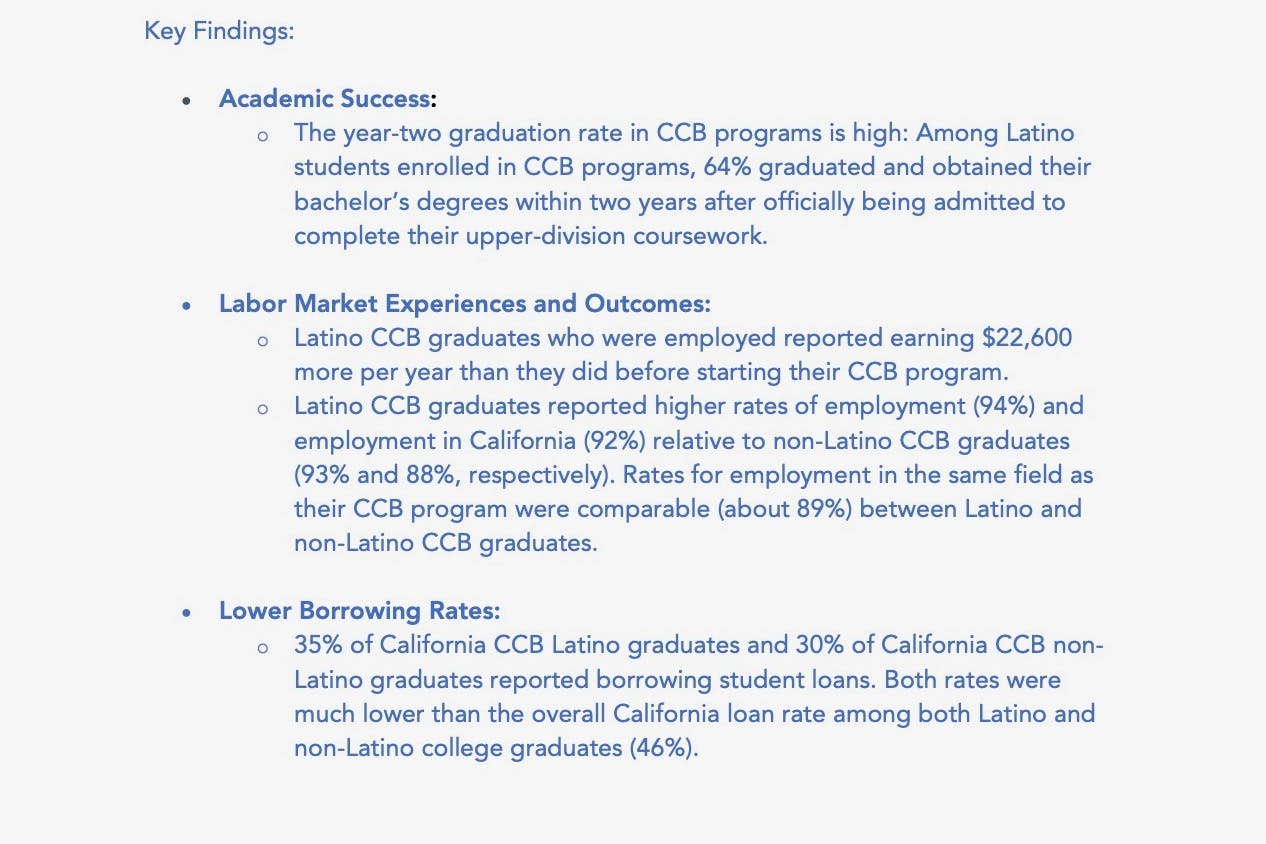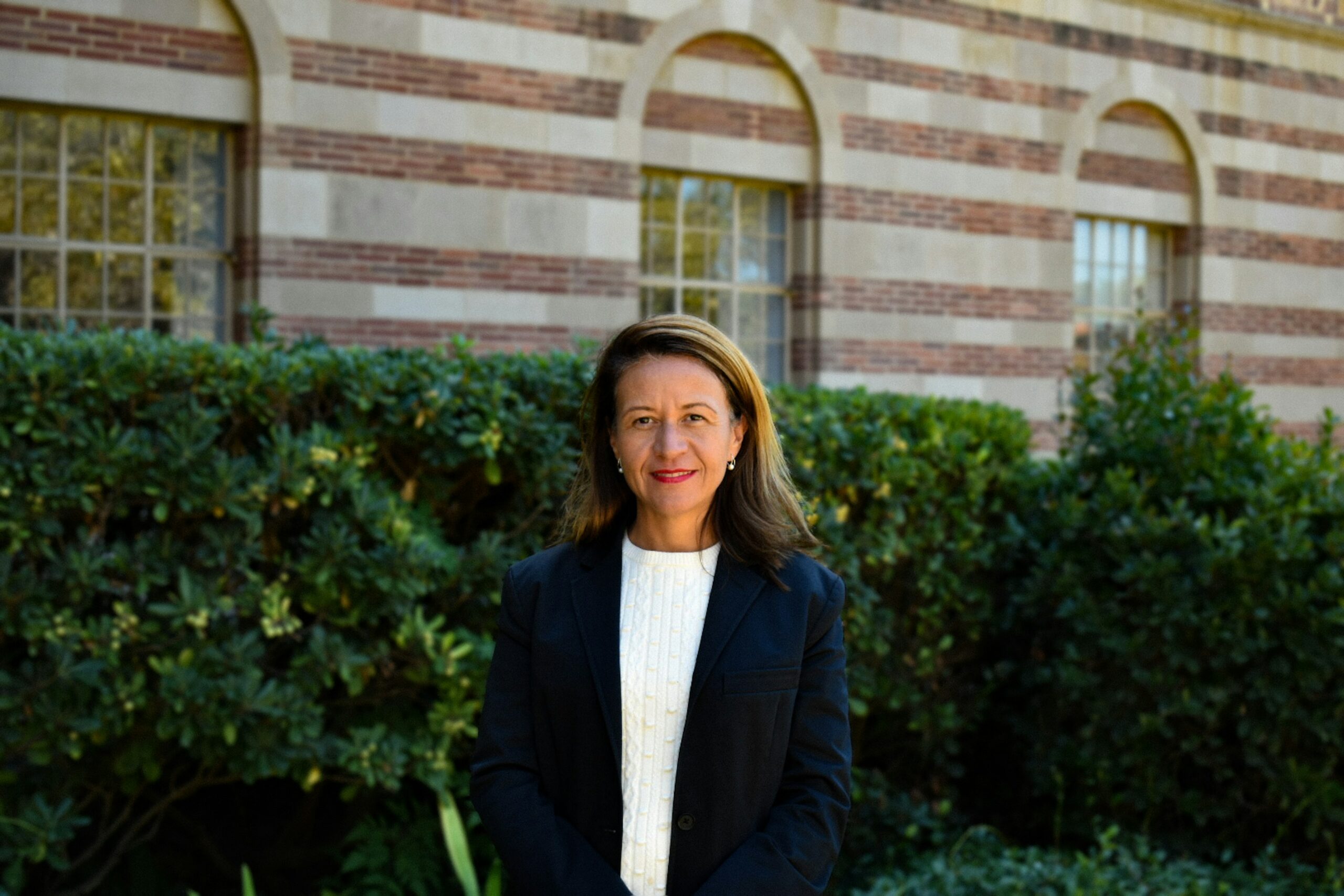Research examines Latino access, academic success, financial experiences in CCB programs
More than 1.3 million Latino students are enrolled in California colleges, the state’s largest population of college students. But historically, fewer Latino students in California have had access to four-year colleges such as the California State University system (CSU) or the University of California which offer bachelor’s degrees, and still fewer attain a baccalaureate degree. Continuing inequities in bachelor’s degree access and attainment compared to the state’s non-Latino population pose a significant challenge to the state’s system of higher education and stand as barriers to learning, opportunity, and achievement for the state’s largest population group. The Latino community represents almost 40 percent of California’s population, but only 20 percent of its bachelor’s degree holders.
“Latinos in California represent a tremendous pool of talent that can help to fuel the future of our state,“ says Cecilia Rios Aguilar, professor of education and the chair of the Department of Education at the UCLA School of Education and Information Studies. “But for too long, inadequate and inequitable funding across K-12 schools, few geographically accessible colleges and universities in areas with high concentrations of Latinos, and high college tuition costs have posed roadblocks to college attendance and degree completion. We need to do more to create pathways to the opportunities a bachelor’s degree can provide.”
One promising pathway for Latino students can be seen in California’s Community College Baccalaureate (CCB) program. Established by the state in 2014 and expanded in 2021, the CCB program enables a limited number of California community colleges to offer bachelor’s degrees in specific subject areas that address unmet workforce needs in a local community or region, such as biomanufacturing or health information management.
A new study published by the UCLA Latino Policy & Politics Institute examining the CCB programs suggests that they may offer an accessible and affordable public pathway to bachelor’s degree attainment for Latino students. The study, “Latinos in California’s Community College Bachelor’s Degree Programs: What We Know so Far,” examines the enrollment, academic success, labor market experiences, and loan rate of Latino students in the CCB Program.

Co-authored by Rios-Aguilar and Davis Vo, a doctoral researcher at the UCLA School of Education and Information Studies, the findings indicate that CCB programs hold significant promise for the Latino community, with 64 percent of Latinos in the program graduating and obtaining their bachelor’s degree within two years after officially being admitted to complete their upper-division coursework. Latino CCB graduates also report positive labor market experience and outcomes, earning more per year than before starting their CCB program, and having higher rates of employment. They also report lower rates of borrowing to complete their education.

But the study also underscores inequities in educational access to CCB programs and success for Latino students. About 30 percent of all students enrolled in the first five academic years of the CCCB programs were Latino, a notably smaller share of students than the overall Latino student share at the 15 community colleges with CCB programs (46%) and across all California community colleges (45%) during the same time.
“We need to better understand and address the inequities in Latino enrollment across different CCB programs. It’s crucial that we identify appealing academic programs and invest in improved outreach and recruitment efforts to attract Latino students,” Rios-Aguilar says.
The study provides recommendations to ensure equitable access and opportunities for Latino students to enroll in California’s CCB programs and calls for further Investment in California’s CCB program. They also encourage the continued collection and analysis of data on Latinos’ academic and labor market experiences and outcomes
“Education leaders and policymakers need to continue to invest and grow California’s CCB programs as a strategy to improve structural and systemic conditions for the Latino community,” concludes Vo.
“Latinos in California’s Community College Bachelor’s Degree Programs: What We Know so Far,” is published by the UCLA Latino Policy & Politics Institute.
